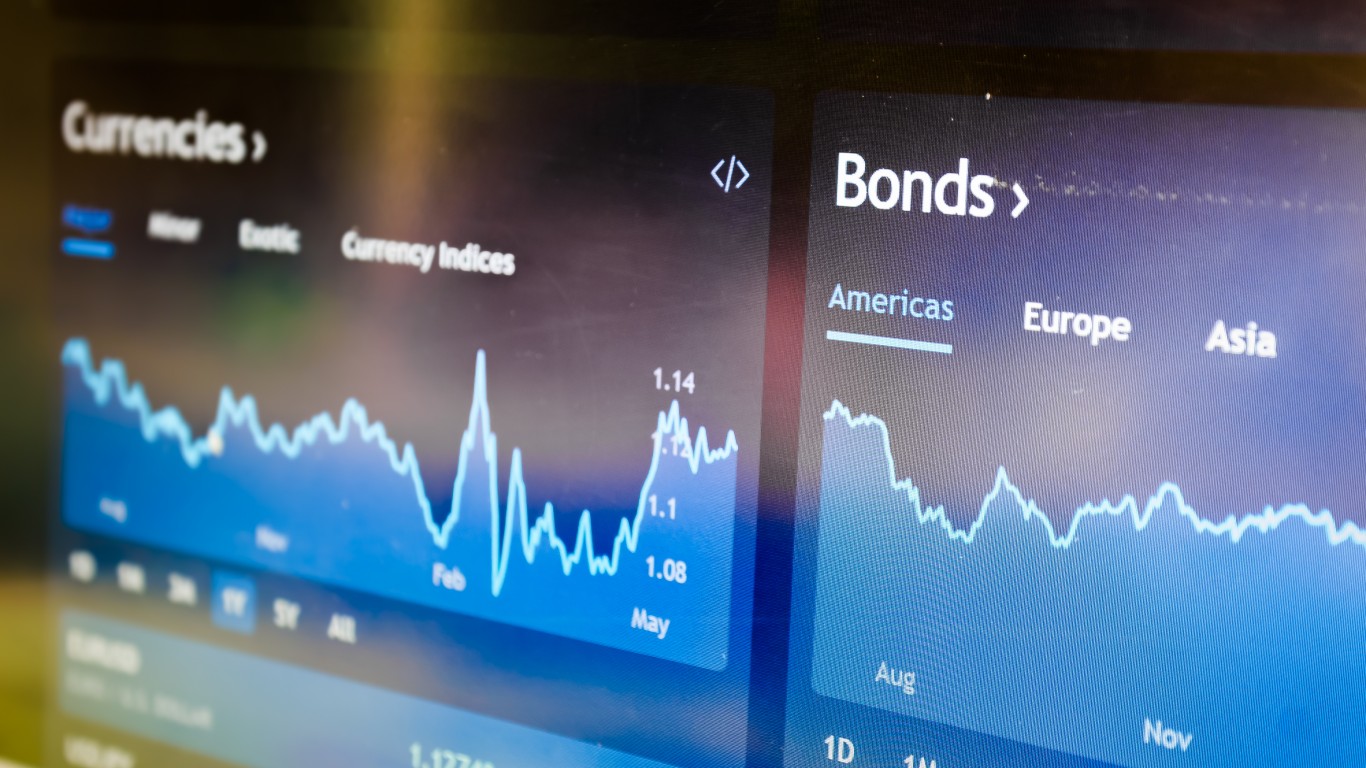
Investors love dividend stocks, especially the ultra-yield variety because they provide a significant income stream and give investors a great opportunity for massive total returns. Total return includes interest, capital gains, dividends, and distributions realized over time. In other words, the total return on an investment or a portfolio consists of income and stock appreciation.
However, sometimes, investors are lured by a stock with a massive dividend that ends with a portfolio explosion they would have liked to avoid. In many cases, this is a harrowing experience. In these instances, the best-case scenario is the companies cut or eliminate the dividend; the worst-case scenario is they file bankruptcy and, in some cases, go out of business.
We screened our 24/7 Wall St. High-Yield dividend stock database, looking for companies that pay massive dividends but have the potential to cause some severe shareholder discomfort.
AGNC Investment

AGNC Investment Corp. (NASDAQ: AGNC) has paid monthly dividends for years; its current yield is 14.95%. It is a real estate investment trust (REIT) in the United States.
The company invests in residential mortgage pass-through securities and collateralized mortgage obligations for which the principal and interest payments are guaranteed by the United States government-sponsored enterprise or by the United States government agency.
AGNC Investment funds its investments primarily through collateralized borrowings structured as repurchase agreements. It has elected to be taxed as a REIT under the Internal Revenue Code 1986. However, it would not be subject to federal corporate income taxes if it distributes at least 90% of its taxable income to its stockholders.
With a stunning net debt-to-equity ratio of 466% and the company’s cutting the dividend twice over the last five years, investors should take heed. Plus, due to ongoing inflation pressures, while the Federal Reserve dividend rate increases are likely over, there might not be cuts until the fall.
In addition, others on Wall Street point to the company’s sky-high dividend payout ratio, 144, the highest in the last 13 years. According to published reports, that ratio is worse than 99.5% of 574 companies in the REIT industry.
While the company will likely remain in business and could have some upside next year as interest rates finally come down, another dividend cut seems possible.
Brandywine Realty Trust

This company pays a massive 13.73% dividend. Brandywine Realty Trust (NYSE: BDN) is one of the largest, publicly traded, full-service, integrated real estate companies in the United States with a core focus in the Philadelphia, Austin, and Washington, D.C. markets.
Organized as a real estate investment trust (REIT), the company owns, develops, leases, and manages an urban, town center, and transit-oriented portfolio comprising 160 properties and 22.6 million square feet as of September 31, 2023, excluding assets held for sale.
While the company has been around for years, the state of commercial real estate is decidedly negative now. Again, while interest rate hikes have likely been completed, the “higher for longer” mantra is growing louder across Wall Street as inflation remains stubborn and sticky. In addition, hopes for an interest rate cut in June are dimming fast.
Toss in the fact that the company missed funds from operations estimates when they reported in January, which could indicate deteriorating results for the rest of 2024. While Brandywine Realty Trust likely remains in business, as it operates in some solid markets in the U.S., a dividend cut could be on the way.
Medical Properties Trust

This company may offer investors the worst value even at current price levels and pays a staggering 13.65% dividend. Medical Properties Trust, Inc. (NYSE: MPW) acquires, develops, invests in healthcare facilities and leases them to healthcare operating companies and providers.
The company also provides mortgage loans to healthcare operators, working capital, and other term loans to its tenants/borrowers.
While the stock has rallied recently on news of potential substantial asset sales and decent earnings, which gave many investors a chance to bail out, the balance sheet is still a monumental work in progress. The company has a massive debt of $10.1 billion, of which almost a third is due in 2026.
In addition, cash from operations has been down a stunning 21% over the last three years. The company’s most significant tenant, Steward Health Care, partially defaulted on paying rent more than once last year. That inability caused the company to cut the dividend last year; another could be coming in 2024.
Travel Cards Are Getting Too Good To Ignore (sponsored)
Credit card companies are pulling out all the stops, with the issuers are offering insane travel rewards and perks.
We’re talking huge sign-up bonuses, points on every purchase, and benefits like lounge access, travel credits, and free hotel nights. For travelers, these rewards can add up to thousands of dollars in flights, upgrades, and luxury experiences every year.
It’s like getting paid to travel — and it’s available to qualified borrowers who know where to look.
We’ve rounded up some of the best travel credit cards on the market. Click here to see the list. Don’t miss these offers — they won’t be this good forever.
Thank you for reading! Have some feedback for us?
Contact the 24/7 Wall St. editorial team.





